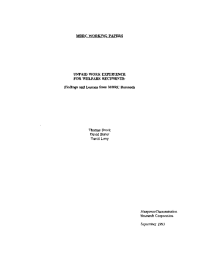Unpaid Work Experience for Welfare Recipients
Findings and Lessons from MDRC Research
This working paper summarizes research about unpaid work experience programs from a series of evaluations conducted by MDRC in the 1980s and early 1990s. These programs — also called "workfare" — required welfare recipients to work in community service jobs, either in government or in the nonprofit sector, as a condition of public assistance. The paper offers the following findings:
- Unpaid work experience usually served a small percentage of the eligible welfare population for three-month periods. An exception was a West Virginia program that operated on a large scale and was not time-limited.
- There is little evidence that unpaid work experience led to consistent employment or earnings effects.
- It is not clear that these programs led to reductions in welfare receipt or welfare payments. Where programs produced such effects, they appeared to be related to job search, not unpaid work.
- While unpaid work experience may have provided free labor to worksite sponsors, it was not free to administering agencies, costing from $700-2,100 per participant (in 1993 dollars).
- Insofar as unpaid work experience contributed to the work of governmental and community nonprofit organizations, it had value to the public at large (that is, the benefits to taxpayers usually outweighed the costs of running the programs).
- Participants in unpaid work experience positions reported that the work was meaningful and not "make work." Still, participants said they learned few new skills.






